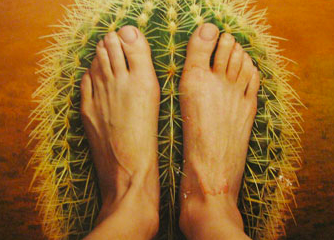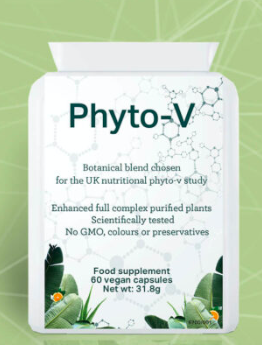
This nerve damage characteristically causes pins and needles, numbness coupled with a
distressing sensation of burning known as hyperaesthesia in a “stocking and
glove” distribution. As the disease progresses, in more severe cases, the
nerves supplying muscle and balance get damaged causing weakness, impaired coordination
difficulty with movement and falls.
About 4% of the population of the UK are known to be affected by peripheral Neuropathy
(PN) at any one time. That's over 2 million people living in the UK with the distress of PN without
any effective treatments being available for the majority. For many people, no
underlying cause is found (idiopathic) but contributory factors including, Diabetes;
Alcohol abuse; Vitamin B deficiency; Chemotherapy such as carboplatin, taxanes and vincristine
and some cases of Long covid
The underlying mechanisms of nerve damage are multifactorial but recently, scientific
attention has focused on the contribution of oxidative stress and
neuroinflammation. Both of these factors have been shown to accelerate spinal
glial (nerve) cell degeneration and block repair.
The first stage in the management of PN is to identify any underlying causes and, if
possible treat them. In the case of chemotherapy, reducing the dose or even
stopping chemotherapy may be the only option. For the majority, however, medical
management just involves alleviating symptoms with pain killers, especially
those which target neuropathic pain such as gabapentin or amitriptyline.
Self help strategies for PN
 There is some evidence that include topical therapies such as chilli (capsaicin) based creams and
acupuncture may provide relief from localized neuropathic pain. Gadgets such as
transcutaneous Electrical Nerve Stimulation (TENS), massage and vibrating tools
have also helped some individuals. Aerobic and strength exercises have proved beneficial in some
trials, especially if combined muscle strength, flexibility and balance. Exercise
can help reduce oxidative stress and inflammation which may be reason
why it helps PN. If you are diabetic, try achieve the best sugar control as
possible. If you smoke or drink more than a few glasses of wine a week, it is
important to quit. Ensuring adequate dietary Vitamin
B and Vitamin D intake.
Follow basic measures to Improve and maintain a
healthy gut. There is some evidence that include topical therapies such as chilli (capsaicin) based creams and
acupuncture may provide relief from localized neuropathic pain. Gadgets such as
transcutaneous Electrical Nerve Stimulation (TENS), massage and vibrating tools
have also helped some individuals. Aerobic and strength exercises have proved beneficial in some
trials, especially if combined muscle strength, flexibility and balance. Exercise
can help reduce oxidative stress and inflammation which may be reason
why it helps PN. If you are diabetic, try achieve the best sugar control as
possible. If you smoke or drink more than a few glasses of wine a week, it is
important to quit. Ensuring adequate dietary Vitamin
B and Vitamin D intake.
Follow basic measures to Improve and maintain a
healthy gut.
Boost intake of foods rich in natural phytochemicals: Phytochemicals
are natural chemicals are found in colourful fruit, vegetables and spices, have also reported reduced
markers of oxidative stress and inflammation which correlated with improved
peripheral nervous system functional recovery in several laboratory studies.
There are some suggestions of benefits in humans but until now robust clinical
studies have not been forthcoming. Recently some intriguing information
has been gained from a scientific study involving people suffering from long
covid which completed last year. It involved 147 people with multitude of distressing
symptoms including 6% with peripheral neuropathy, pins and needles or
hyperaesthesia. Fortunately, these troublesome neurological symptoms improved in
response to the intervention which consisted of two nutritional supplements. The
first aimed to improve gut health and vitamin D levels with a supplement called
Yourgutplus. The second, called Phyto-V, boosted the intake of specific natural
nutrients in plants called phytochemicals known for their anti-viral,
anti-inflammatory and anti-oxidative properties. In the final publication in the
journal COVID, although these symptoms were noted, the emphasis was on the
substantial improvements in fatigue, sleep, muscle aches, gut symptoms and
overall wellbeing. After the trial completed, the trials unit started receiving emails from
people across the world who had bought the supplements independently, letting us
know that their long standing neuropathy had improved. For example, from
Rachael who took the time to email us, this is what she said:
 "I
took Phyto-V to help my recovery from a covid infection. I was nicely surprised
that after 4 weeks my long standing neuropathy started to improve. When I
stopped it, my pins and needles returned. Happily, when I restarted it again
they disappeared - I won't stop now" "I
took Phyto-V to help my recovery from a covid infection. I was nicely surprised
that after 4 weeks my long standing neuropathy started to improve. When I
stopped it, my pins and needles returned. Happily, when I restarted it again
they disappeared - I won't stop now"
In view of these comments together with the results seen in the trial the trials team decided to look
into the causes and treatments for PN in more detail. The scientific committee
lead by a team from Bedford and Addenbrooke's Cambridge University Hospitals was
therefore re-convened and a new trial designed. Participants with PN will be
randomised to either placebo, Yourgutplus
and / or Phyto-V, repackaged so the patients won't know what they will be taking. Likewise, the
medical team will not know - a design technique called double blind which aims
to reduce any unconscious bias between the two randomised groups.
After 150 patients have finished the 6 month intervention, the blinding-codes will be
cracked open and we will find, for sure, whether our suspicious are confirmed.
We will also be able tell whether Phyto-V works on its own or whether it has to
be combined with Yourgutplus as in the covid trial. This will be the largest and
most robust nutritional intervention in the World addressing the discomfort of
peripheral neuropathy and if positive could provide a practical, safe and low
cost self-help strategy for millions. Details of the study, its progress and eventual results can be found on the
trial website.
|